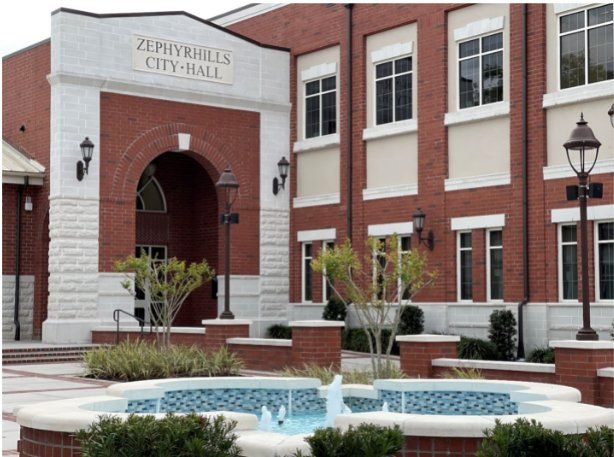CALL US TODAY · (813) 716-4498

What are HOA Fees? Breaking down what Home Owner Associations are
Good to Know

If you’re planning to buy a condo, townhome, high-rise or single-family home in a community that’s maintained by a homeowner’s association, you should know what benefits the HOA offers and what the fees will cost. Fees vary widely, depending on the list of services and amenities the community offers and the cost of maintaining security and safety equipment as well as common areas such as grounds, swimming pools, walking trails and fitness rooms, dog parks, roads, and roofs, parking garages and elevators for high-rises and condos. Monthly, quarterly or annually, fees are collected by the HOA board or its property management company to cover the following:
Ongoing operating costs. The HOA fees or property management fees pay for regular bills including cleaning services, lawn maintenance, trash removal and sewage disposal, security patrols, and employees, among many other things.
Reserves. The HOA determines what possible future expenditures might be and sets aside money a portion of HOA fees for reserves. These funds are to be used for large, but infrequent expenses. For example, the swimming pool may need retiling and new equipment every ten years or so. The HOA determines what that cost will be and sets aside money for it, so that by the time ten years has gone by, the money is readily available for the new pool.
Special assessments. Sometimes, the HOA may not have enough money in reserves through poor management, sky-high insurance deductibles, oversights, and emergencies. In that case, the HOA imposes a special assessment to collect from each homeowner to clean, repair or replace things that aren’t accounted for in reserves. This can be an ugly surprise for homeowners, so some states limit the amount that can be collected for special assessments. The CC&Rs should cover the collection of special assessments including if it requires a homeowner vote or simply approval by the current board.
According to a 2019 University of California, Irving study, HOAs have steadily grown in popularity since the 1960s. In the U.S., nearly 60 percent of recently built single-family houses, and 80 percent of houses in new subdivisions, are governed by homeowner associations. Today, one-fifth of Americans live in homes under HOA management. Why are they so popular? The researchers say that homes in HOAs are worth an average 4 percent more than similar homes not under HOA management. Every dollar paid to an HOA buys about $1.19 in benefits, says the research.
How do HOAs work? HOAs begin with homeowners who have bought into common interest developments (CIDs), a planned community that offers you the chance to purchase divided interests (the house and its yard, condo (you own the air space only), townhome (you own only the land your townhome sits upon) or land that you own as an individual). Your household counts as one share and one vote in the common interests such as the grounds, pools, and other amenities. By law, each CID must have an HOA to manage shared property and to enforce contractual rules, known as covenants, conditions, and restrictions (CC&Rs).
The HOA has one purpose – to protect and enhance the community’s property values, CC&Rs help homeowners, renters and visitors keep the community safe, clean, attractive and desirable. The rules vary widely, but you can expect some of the following, according to Houwzer.com:
- Controls over the exterior appearance of your home. Approved paint colors lend continuity to a community. Gnomes, pink flamingos and other lawn decorations do not. Lack of upkeep or willful disregard could result in fines.
- Noise restrictions. From dog barking to late night music and parties, quiet is preferred by most neighbors, and rowdiness could result in fines.
- Occupancy restrictions. The number of people who live in your home can create problems. The owners of the home may be invested in the community, and others living in the home may not. Overcrowded homes are harder to maintain, tend to be noisier, and result in more infractions such as car-parking abuses.
- Age restrictions. Over 55 communities tend to have benefits that favor early retirees and aging homeowners, and offer few amenities for children. Grandchildren can visit for short periods, but typically can’t stay all summer.
- Pet size and number rules. Condos and high-rises tend to have size and number limits on pets, primarily because of space limitations, safety issues, noise and smells, and lack of outdoor facilities.
- Parking rules. Many HOAs require cars to be parked in the garage, not on the street. There may also be restrictions on the number and type of vehicles you can have. You’ll have to get off-site parking for your RV or boat.
- Rental restrictions. HOA-managed homes are ideal for people who travel, but neighbors don’t want a constant parade of short-term renters and other strangers who may not respect the community’s rules. So don’t plan to Airbnb or Vrbo your home while you go on vacation.
- No deferred maintenance. The fastest way to lose equity is through deferred maintenance that results in deterioration of the home. Homes in poor condition bring down the values of nearby homes. You’ll be expected to fix or replace items that the HOA isn’t responsible for in a timely fashion.
The CC&Rs and Bylaws are usually recorded with the county. This empowers the HOA to have legal authority in case of foreclosures or other penalties due to non-payment of dues and assessments or other non-compliance issues.
Composed of volunteers from among the homeowners, the HOA allows you to enjoy multiple benefits because you’re sharing the costs with the other homeowners. But that doesn’t mean you don’t have responsibilities - the HOA needs residents to serve on the board as well as to vote in elections and for proposals that impact the community at large.
Before you buy a home in an HOA-managed community, make sure you read the CC&Rs, review the annual budget and the reserves. These are the rules of esthetics, conduct, maintenance, and security the other homeowners voted to have. Compare the fees – they should be reasonable and approximate what you’d pay for services if you weren’t part of an HOA-run community. Are there homeowners who haven’t paid their dues? Does the accounting seem above board to you? Are there any rules you feel you can’t follow? You can then make the decision whether this particular community is right for you.
East Pasco Living Team
We are a collaborative team with a vision to put our years of experience working and living in East Pasco to work for you! We strive to build long-term relationships and give you the individualized attention you deserve. Let us put our combined decades of experience to work for you.
Carla Goddard | East Pasco Living Team Lead
Graduate, REALTOR® Institute | Residential Specialist | BHHS-Certified New Home Specialist | Certified National Home Specialist – Residential Construction Certified (CNHS-RCC) | NHCB Certified New Homes Co-Broker |BHHS-Certified eCertified® Specialist | BHHS-Certified rCertifiedSM Referral and Relocation Specialist | Tampa Bay Builder Services Manager
Berkshire Hathaway Home Services
📧email: carla@eastpascoliving.com
📲text/call 813.716.4498
Article by BHH Affiliates, LLC used with permission © 2022 BHH Affiliates, LLC.
Real Estate Brokerage Services are offered through the network member franchisees of BHH Affiliates, LLC. Most franchisees are independently owned and operated. Berkshire Hathaway HomeServices and the Berkshire Hathaway HomeServices symbol are registered marks of Columbia Insurance Company, a Berkshire Hathaway affiliate.
LOCATIONS
26771 State Rd 56,
Wesley Chapel, FL 33544
Business Hours
Monday to Saturday 9:00 AM to 5:00PM
Closed Sunday
© 2022 BHH Affiliates, LLC.
An independently owned and operated franchisee of BHH Affiliates, LLC. Berkshire Hathaway HomeServices and the Berkshire Hathaway HomeServices symbol are registered service marks of Columbia Insurance Company, a Berkshire Hathaway affiliate.
Equal Housing Opportunity
Powered by RuFire Media





